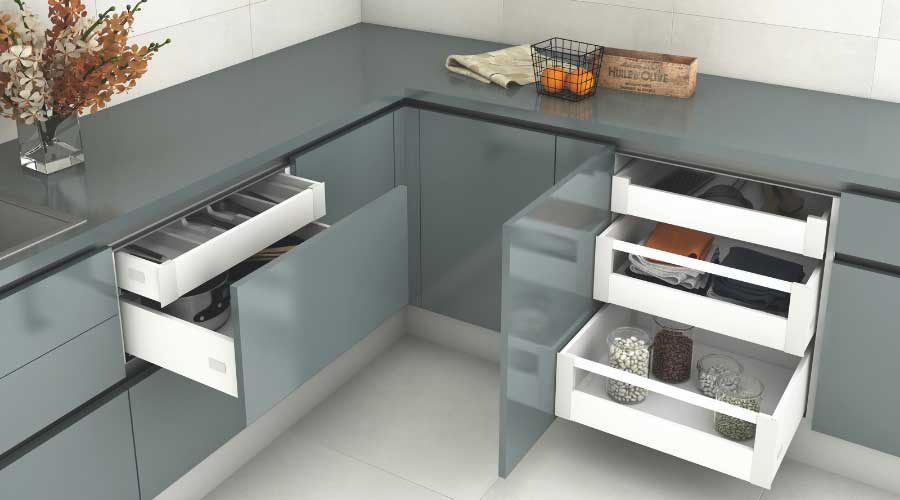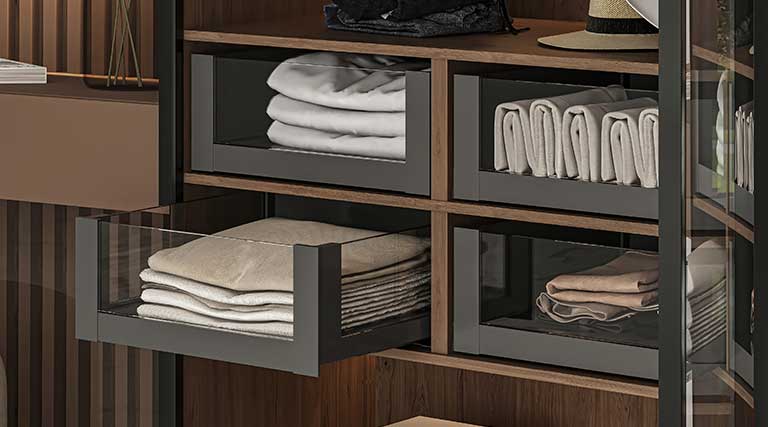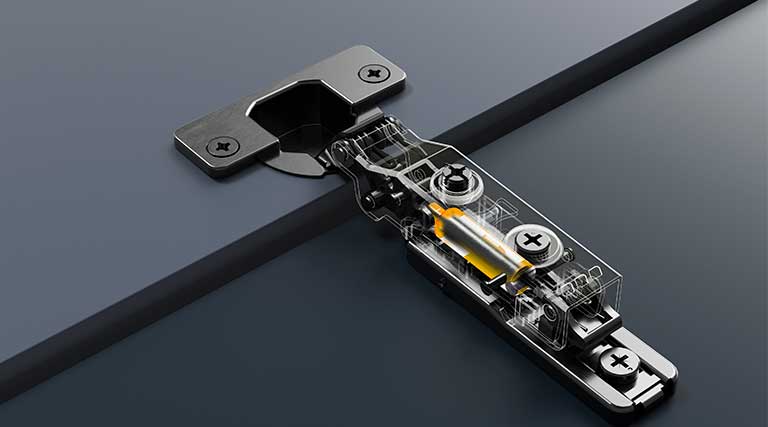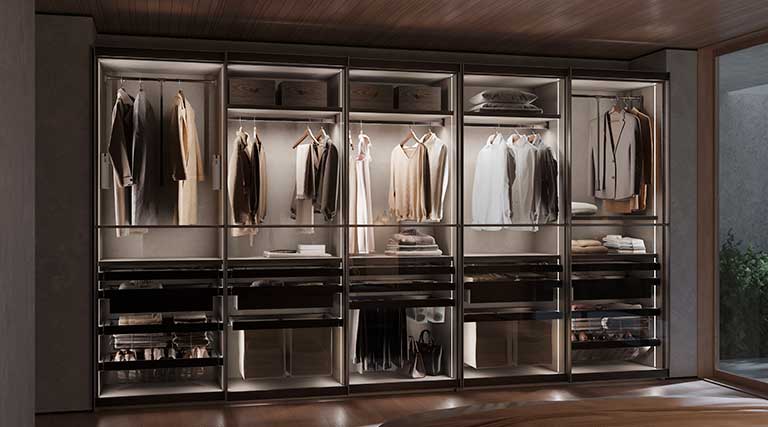The quality and the materials you should use in your different works will depend on many factors that you will have to assess and take into account before even starting the design you have in your hands. The type of furniture you want to include, its place, its functionality, its use and its durability, will make you choose plastic hardware or other materials. Of course, depending on what best suits each specific need.
At Emuca we are specialists in furniture hardware and, moreover, we are passionate about advising, sharing our experiences and guiding our clients throughout the purchasing process, so that you can be completely convinced that what you are acquiring is exactly what you need in each particular project.
Applications of plastic hardware: which furniture are they most suitable for?
Plastic hardware is mainly recommended for kitchen or bathroom furniture which is exposed to different temperature conditions and which, as a general rule, does not have to withstand excessive weight but is subject to continuous use.
There are, of course, different types of plastics that are used as hardware, for example, PVC, polyvinyl chloride, which is a chemical combination of carbon, hydrogen and chlorine. It is a light and harmless material and can be molded at temperatures of between 140 and 205º. It provides great versatility and is also widely used due to its quality/price ratio. This is why it is in great demand in Spain. It is also very easy to transform, which makes it possible to create all kinds of hardware and adapt them to any place, and, of course, it is totally recyclable.
It is also often used for the construction of drinking water distribution, drainage, windows, doors, blinds, floors, cladding, electrical conduits…
In addition, it is highly resistant to corrosion and humidity and, when used in windows, it provides great insulation properties. It is also generally easy to maintain and durable.
Advantages and disadvantages of plastic hardware
As mentioned above, plastic hardware can be easily molded to fit any space and also provide high insulation properties.
Of course, their price is also much cheaper and accessible to all budgets. However, it is also important to be aware of their main disadvantages, which include their limited resistance to weight, their lower resistance to impact and damage compared to aluminum, and also their comparatively shorter lifespan.
Plastic vs. aluminum: which is better?
Although plastic supports or other types of hardware made of this material are really effective, practical and advisable for the implementation of your projects, you should know that there is also aluminum hardware that has very useful properties and can add value to your projects, although the price may seem somewhat higher. Aluminum, unlike plastic, has a much longer useful life, remains in perfect condition for much longer and requires very little maintenance.
In addition, it has a much higher resistance to weight than plastic, is flame-retardant and can resist very high temperatures. As far as cleaning is concerned, it provides much more security than the rest.
At Emuca you can find hardware of different materials that will adapt to all your needs as well as plastic supports, aluminum supports or a wide range of materials from which you can choose.
Determining exactly what your clients are going to need in each project, in each room and in each piece of furniture to be included, will be the key factor that will help you to decide between one or the other. But, if you have any doubts, don’t hesitate to ask us! Our advisors will help you find exactly what you are looking for so that the result of your project is amazing and your clients are completely satisfied.







